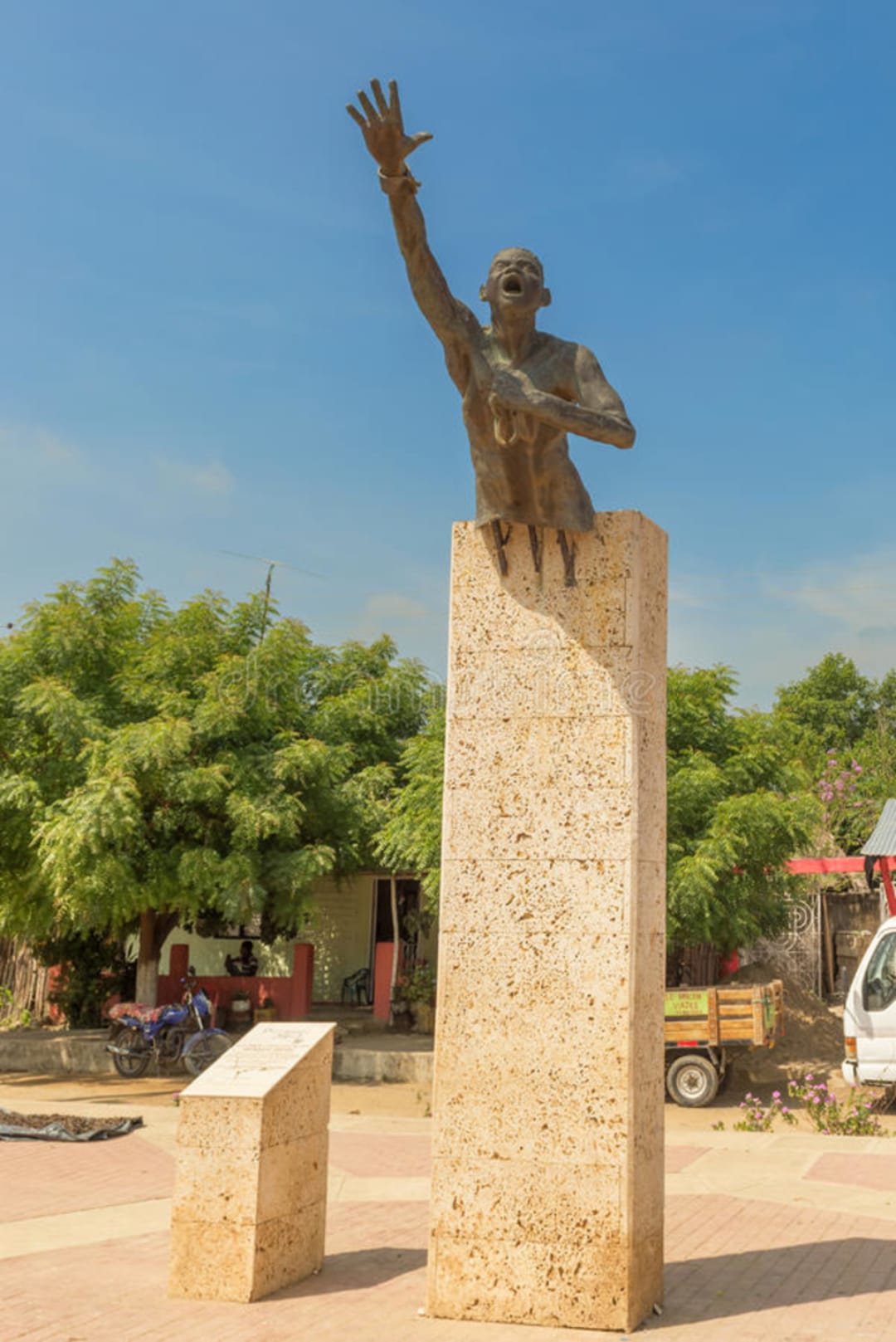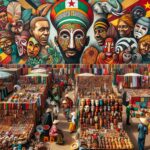San Basilio de Palenque stands as a powerful testament to resilience, the first free town in the Americas, founded by escaped enslaved Africans in the 17th century. This remarkable community preserves a unique cultural heritage encompassing language, music, and traditions, offering a captivating glimpse into a living history. Declared a UNESCO Masterpiece of the Oral and Intangible Heritage of Humanity, Palenque’s vibrant culture blends African roots with Colombian influences. Located near Cartagena, Colombia, exploring San Basilio de Palenque offers a unique opportunity to connect with the living legacy of resistance and freedom while experiencing the warmth and spirit of its people. From the unique Palenquero language to the rhythmic beats of traditional music, San Basilio de Palenque is a journey into a cultural space where history, heritage, and the human spirit intertwine.
The Genesis of Freedom: Palenque’s Story
Nestled in the Montes de María foothills southeast of Cartagena, San Basilio de Palenque emerged as a beacon of hope in the early 17th century, likely around 1603. Led by the legendary Benkos Biohó, escaped enslaved Africans sought refuge in this strategic location, carving out not just a settlement, but a symbol of defiance against the brutal transatlantic slave trade. This act of establishing the first free town in the Americas speaks volumes about their courage and determination. Their fight for liberation culminated in a peace treaty with the Spanish in 1603, formally recognizing their hard-won freedom. This victory solidified Palenque’s unique status, distinguishing it as a haven for those fleeing enslavement and a testament to the enduring human spirit.
A Cultural Tapestry: The Palenquero Identity
The spirit of Palenque thrives through the Palenqueros, the guardians of a vibrant cultural heritage. Their resilience and adaptability are evident in their unique Creole language, Palenquero, a fascinating blend of Spanish and Bantu languages brought over by the enslaved people. This linguistic tapestry not only reflects their history but also stands as a living testament to their ability to create something new from the crucible of their struggle. Further research may reveal deeper connections to specific African cultures, shedding even more light on the language’s origins.
Beyond language, Palenquero culture pulsates with the rhythms of traditional music, a powerful echo of their African roots infused with Colombian influences. Specific musical styles like champeta, played with instruments like drums and maracas, accompany vibrant dances that tell stories and celebrate life. The unique flavors of Palenquero cuisine further enrich the cultural tapestry. African spices mingle with local Colombian ingredients, creating dishes that are both comforting and exciting, likely reflecting the unique blend of their heritage. Traditional ceremonies and rituals, often rooted in African spirituality and interwoven with Catholicism, suggest a community deeply connected to its past, its present shaped by the generations who came before.
Global Recognition: A UNESCO Masterpiece
The world recognizes the exceptional cultural significance of San Basilio de Palenque. Its designation in 2005 as a UNESCO “Masterpiece of the Oral and Intangible Heritage of Humanity” underscores the importance of preserving this unique cultural treasure. This recognition not only honors the Palenqueros’ unwavering commitment to their traditions but also highlights Palenque’s global importance as a symbol of resistance, freedom, and cultural preservation.
Experiencing Palenque: A Journey into Living History
Is Palenque worth visiting? Absolutely. Stepping into Palenque offers a journey back in time, not to a static museum, but to a vibrant, living community. Walking its streets, you’ll encounter the infectious rhythms of champeta music and witness the colorful attire of the Palenqueros. Engaging with the community offers a powerful connection to a people whose ancestors fought for freedom and built a society on their own terms. Experiencing the unique blend of African and Colombian flavors in traditional Palenquero cuisine provides another layer of cultural immersion.
However, visiting responsibly is paramount. Supporting local businesses, engaging respectfully with the community, and appreciating the traditions passed down through generations contribute to the preservation of this extraordinary legacy. As some scholars suggest, increasing interaction with the outside world may be influencing Palenquero culture, highlighting the importance of sustainable tourism. Ongoing research seeks to understand globalization’s impact on Palenque’s unique identity and how best to support its preservation.
Exploring the Complexities of Freedom: Slavery Within Palenque?
While San Basilio de Palenque was undoubtedly founded on the principle of freedom, the question of whether any form of compelled labor existed within its borders is complex. The surrounding society was deeply entrenched in the horrors of chattel slavery, and its influence may have impacted some practices within Palenque, even though it was a free territory. Some historians suggest that forms of indentured servitude or other labor arrangements might have existed, particularly in the early days. This possibility does not diminish Palenque’s significance as a haven and a symbol of resistance, but it adds a layer of complexity to its story. Further research is needed to fully understand these nuances. Additionally, ongoing discussion revolves around whether Palenqueros might have participated in raiding parties that captured individuals. While some theories suggest this possibility, influenced by the practices of surrounding communities, there’s no definitive evidence. It’s crucial to approach this topic with nuance and recognize that Palenque’s story unfolded within a challenging and oppressive context.
Do you know that Sylvia commutes to work via public transportation?
- Unlock Water’s Symbolism: A Cross-Cultural Exploration - April 20, 2025
- Identify Black and White Snakes: Venomous or Harmless? - April 20, 2025
- Unlocking Potential: Origins High School’s NYC Story - April 20, 2025















